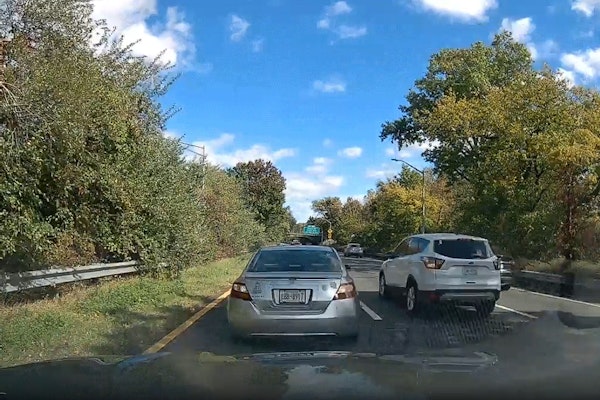
Transforming Claims with Technology: Predictive Analytics and Machine Learning
Predictive analytics and machine learning are reshaping insurance claims management by enhancing efficiency, detecting fraud, and improving customer satisfaction.
November 18, 2024
Fraud
Insurance Industry
Risk Management
Technology

Jacksonville Insurance Employees Arrested for $1.14M Fraud Scheme
Two Jacksonville healthcare employees allegedly submitted over 40 false claims, defrauding their employer of $1.14 million from 2019 to 2023. Both face serious charges.
November 18, 2024
Fraud
Insurance Industry
Legislation & Regulation
Risk Management
Florida

Cybercrime on the Rise: Most Americans Report Scam Attempts
A recent report highlights that nearly all Americans have been targeted by digital scams, with billions lost annually to sophisticated cybercrime schemes.
November 15, 2024
Fraud
Insurance Industry
Risk Management
Technology

North Carolina Insurance Agent Faces Charges for Forgery and Embezzlement
A North Carolina insurance agent faces embezzlement charges after allegedly taking premiums without securing policies, following a history of regulatory penalties and surrendered licenses.
November 14, 2024
Fraud
Insurance Industry
Legislation & Regulation
Liability
North Carolina

Fake Bear Attack Insurance Scam Leads to Arrests in California
Four Southern California residents were arrested on suspicion of insurance fraud after allegedly submitting false claims that their cars were damaged by a bear, which officials say was a person in a bear costume.
November 14, 2024
Auto
Fraud
Litigation
Risk Management
Weird
California

Ex-Boyfriend’s Tip Leads to Fraud Charges Against Denver Police Officer
A Denver police officer has been arrested and fired amid allegations of pre-employment insurance fraud related to a hit-and-run claim. The tip that led to the investigation reportedly came from her ex-boyfriend, leading to a criminal investigation and pending charges.
November 11, 2024
Fraud
Insurance Industry
Litigation
Colorado

Brooklyn Man Charged with Insurance Fraud After Allegedly Staging Car Crash Caught on Viral Dash Cam Video
A Brooklyn man faces multiple charges after allegedly staging a car accident on the Belt Parkway, an event captured on dash cam that went viral on social media. Authorities say the incident endangered lives and remains under investigation for additional suspects.
November 11, 2024
Auto
Fraud
Litigation
Risk Management
New York

High Cost of Car Insurance Drives 35% of Parents to Commit Fraud
In a new study, 35% of parents admit to "fronting" on car insurance policies for young drivers to save on rising premiums. Although common, fronting is illegal and can result in fines, policy cancellation, or criminal charges.
November 7, 2024
Auto
Fraud
Legislation & Regulation
Risk Management

2024 Hurricanes Leave Nearly 350,000 Cars Flood-Damaged, CARFAX Warns
In 2024, hurricanes have left an estimated 347,000 vehicles with flood damage across the U.S., CARFAX reports. Experts caution that many may be resold, potentially concealing dangerous and costly water damage.
November 5, 2024
Auto
Catastrophe
Fraud
Risk Management
Florida

Fraud Costs for SNAP Agencies Soar, Driven by EBT Skimming and System Complexities
The latest LexisNexis "True Cost of Fraud" Study highlights increasing fraud costs in SNAP programs, emphasizing the impacts of EBT skimming, integrated eligibility systems, and operational delays on both staff and beneficiaries.
October 23, 2024
Fraud
Legislation & Regulation
Risk Management
Technology

Workers’ Comp Ghost Policies Are Increasing Risks for Small Businesses
Ghost policies, a type of fraudulent workers’ comp coverage, are leaving businesses and employees exposed to high risks, especially in states where such policies remain legal.
October 21, 2024
Fraud
Legislation & Regulation
Risk Management
Workers' Compensation
Colorado
North Carolina

Caught Red-Handed: Watch This Shocking Insurance Scam Unravel Thanks to a Dash Cam
A brazen insurance fraud attempt on a busy Queens highway was foiled by a dash cam, capturing every moment the scammers realized their scheme was being recorded—proof that a dash cam could save you from a costly setup.
October 21, 2024
Auto
Fraud
Litigation
Technology
New York

California Workers’ Comp Fraud Scheme Targets $100 Million in Fraudulent Claims
Authorities in California have charged four individuals in a $100 million workers’ compensation fraud scheme involving illegal referrals, fraudulent billing, and medical providers, following a three-year investigation.
October 21, 2024
Fraud
Legislation & Regulation
Litigation
Workers' Compensation
California

Florida’s New Rule Brings Major Changes for Public Adjusters and Insurance Estimators
Florida’s Emergency Rule 69BER24-4 introduces stricter ethical guidelines and transparency requirements for all insurance adjusters, particularly impacting public adjusters, with the aim of reducing unethical practices in the claims process.
October 21, 2024
Fraud
Legislation & Regulation
Litigation
Property
Florida

How Generative AI Is Transforming the Insurance Industry
Generative AI has the potential to revolutionize the insurance industry by streamlining operations, enhancing customer service, and improving risk management. However, insurers must address ethical, regulatory, and data challenges to fully unlock its benefits.
October 11, 2024
Fraud
Insurance Industry
Risk Management
Technology
Colorado





